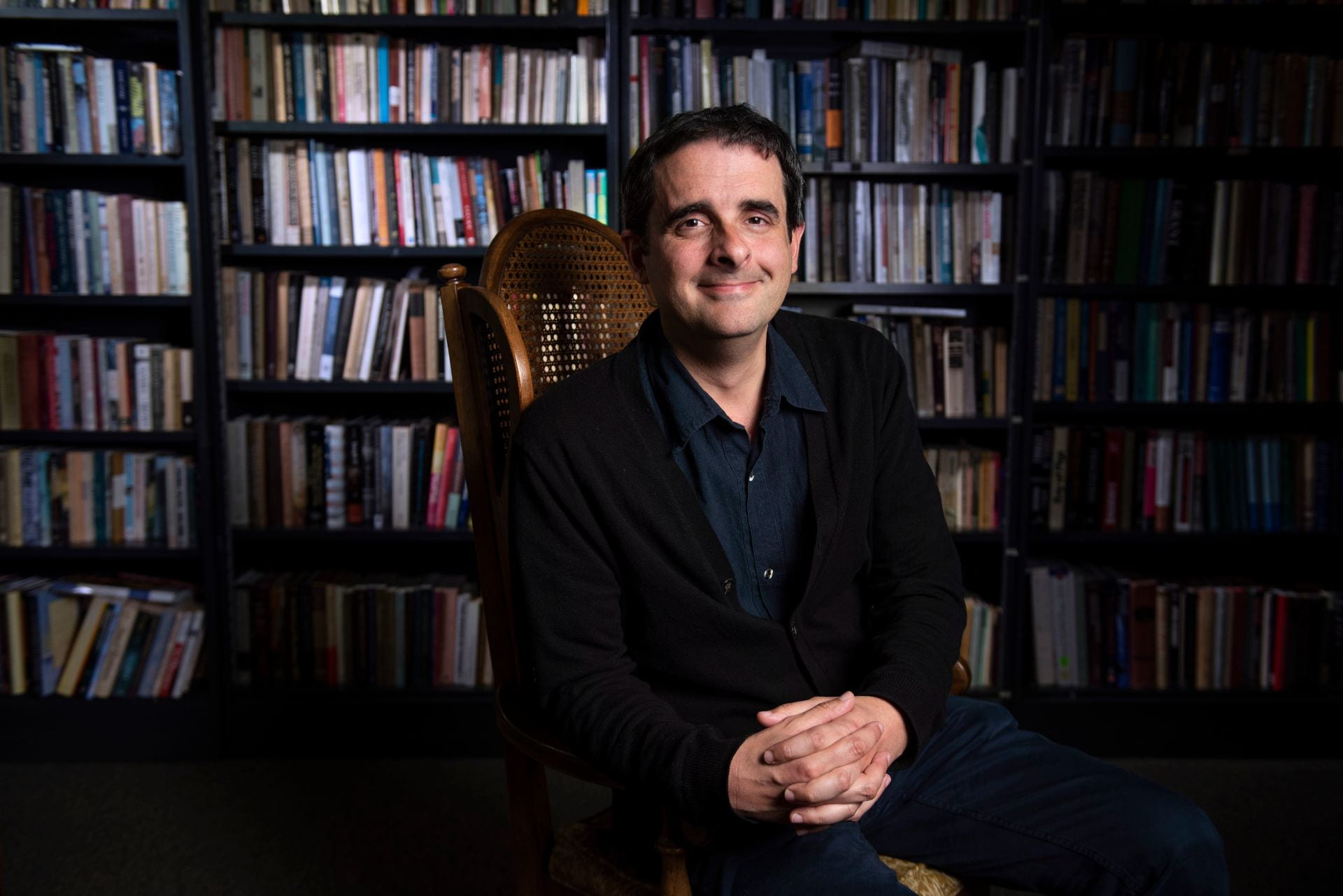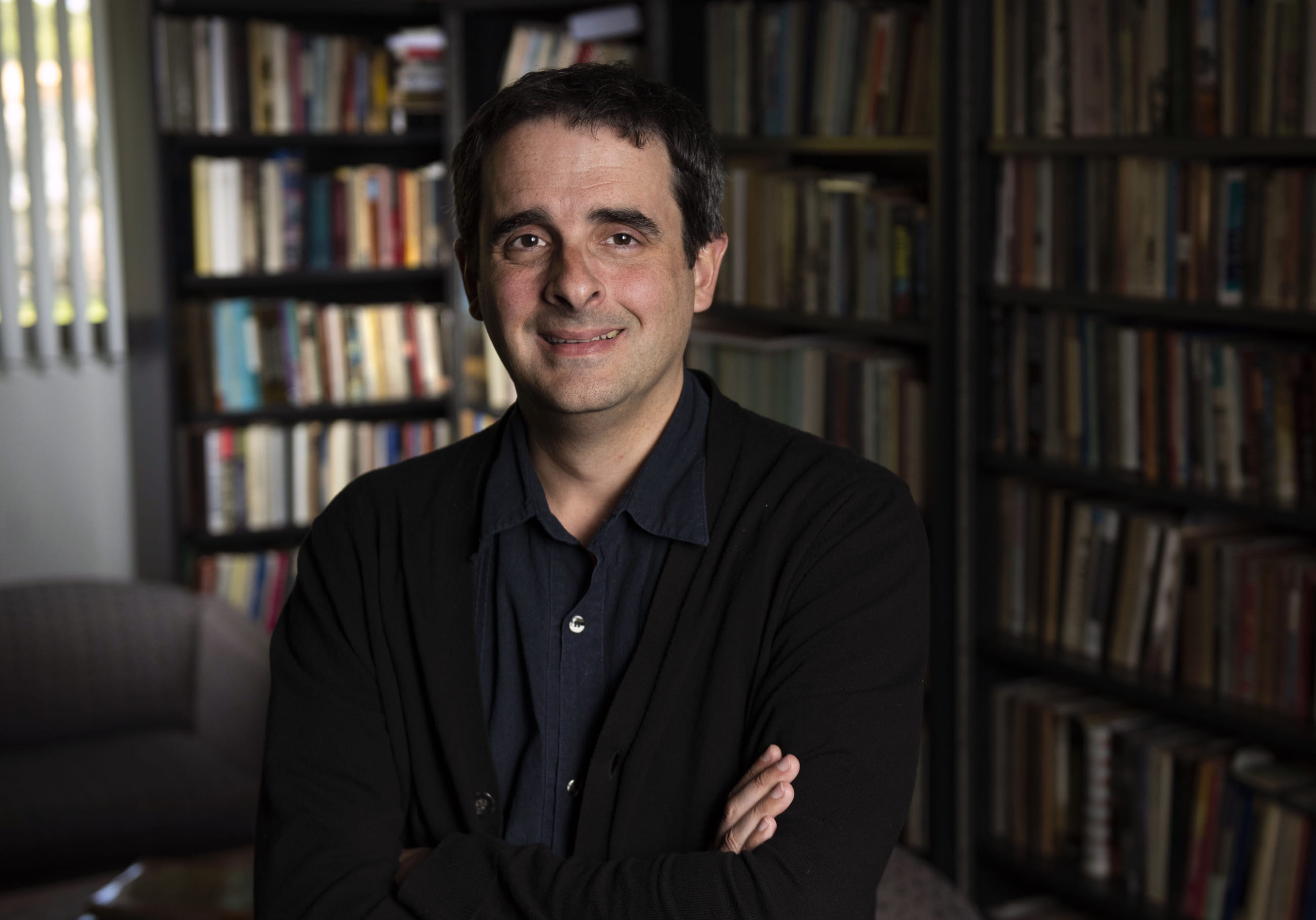Core values
Freshman humanities course is ‘immersive deep dive into what it is that makes us human’

UCI’s Humanities Core course – a three-quarter sequence of lecture and writing classes for freshmen that explores a chosen theme through the study of literature, film, history, philosophy, popular culture and visual art – tends to ignite unexpected passions.
Mechanical engineering and math major Steven Whitelaw Young found himself avidly reading Aphra Behn’s Oroonoko and J.M. Coetzee’s Waiting for the Barbarians and watching the film “The Revenant” with zeal – fascinated by how religious faith can resist oppression and both remedy and justify violence.
Human biology major Marvin Paguio became captivated by documentary filmmaking, which he utilized in his senior thesis, a film about the psychological effects of working in public health.
Other HumCore students are moved to reconnect with their cultures and ancestors. For example, after listening to lectures by history professor Vinayak Chaturvedi on the British colonization and partition of India, mechanical engineering major Gokul Varma decided to focus his spring research project on his heritage.
“I started understanding my own history,” he says. “I was able to talk about India with my family and, through these conversations, enrich myself as a human being. Humanities Core helped me grow as a person.”
In fact, 85 percent of HumCore students are not humanities majors. And while the course – established in 1970 – was originally more aligned with the traditional disciplines of literature, philosophy and art, it has grown to encompass gender and cultural studies and even medicine. This diversity, says program director Nasrin Rahimieh, enriches the experience.
“We don’t assume there’s a canon that’s fixed forever. There are so many ways to work across disciplines, but for us the question becomes how to expose one another to different perspectives and what we learn from one another,” says Rahimieh, the Howard Baskerville Professor of Humanities in UCI’s Department of Comparative Literature.
Over the past three years, the number of HumCore enrollees per quarter has ranged from 774 to 944. This encompasses many of the university’s most competitive scholars, as the course is required for all those in the Campuswide Honors Collegium.
Tyrus Miller, dean of the School of Humanities, calls the program “an immersive deep dive into what it is that makes us human” and says: “It’s an extraordinary opportunity for UCI students to take up a topic of broad interest and – over a full academic year of lectures, seminars and writing – develop a rich understanding of it across humanities disciplines.”
The current HumCore focus is on how animal-human interactions throughout history have shaped the world today, how animals have been depicted in literature and art, and how to understand human experience in relation to other species. The curriculum also explores humanity’s role as planetary steward and addresses ecological disasters and advances in biological research. It is, Rahimieh notes, highly interdisciplinary.
This winter quarter, for instance, history professor Adria Imada, a medical humanities affiliate, will use frameworks drawn from disability studies to discuss contexts in which humans have been treated “like animals” – from late 19th-century human zoos to the confinement of populations with leprosy in Kalaupapa, Hawaii, throughout much of the 20th century. Imada will also talk about the companion animals of people in the U.S. prison system and play a podcast made in and broadcast from San Quentin.
Faculty encourage engagement with HumCore themes far beyond the classroom. The program hosts regular film screenings that coincide with course topics. Last fall, for example, 100 students gathered to sip apple cider and watch Wes Anderson’s “Fantastic Mr. Fox” in tandem with English professor Rebecca Davis’ lectures on the Reynard cycle, medieval stories about another trickster fox.
Friday Forums feature guest speakers from around the country and even the world addressing thematic subjects. Students may also attend related art and cultural events either free of charge or at a discount through UCI’s Illuminations initiative.
HumCore alumna Claudia Castro Luna, who earned a bachelor’s degree in anthropology in 1989, is now poet laureate for the state of Washington. A native of El Salvador, she appreciated the rigor of the course’s writing component.
“As an English language learner, I didn’t do well on my first essays, but I was given the opportunity to rewrite them,” Castro Luna says. “I did again and again until I obtained a decent grade. Through back-and-forth feedback with professors, I came to understand the anatomy of an essay.”
She recalls the vibrant and dynamic lectures given by HumCore faculty and the critical lens with which students were asked to analyze the works of St. Augustine, Emile Zola, Mark Twain and others.
“The breadth and depth of the material presented in Humanities Core became the foundation for future learning,” Castro Luna says. “It became an armature to which I could hang other concepts and ideas. After several graduate degrees, it remains one of the most important courses of study I have ever undertaken, and for that I am grateful.”


